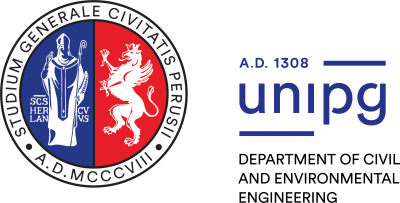
MSc in Environmental Engineering
Perugia, Italy
DURATION
2 Years
LANGUAGES
Italian
PACE
Full time
APPLICATION DEADLINE
Request application deadline
EARLIEST START DATE
Oct 2024
TUITION FEES
Request tuition fees

STUDY FORMAT
On-Campus
Introduction
The Master's Degree Course in Environmental Engineering represents excellence in Central Italy in the fields of environmental and territorial monitoring, soil protection, wastewater, and solid waste treatment, protection of environmental, geological, and energy resources, and assessment of the impacts and sustainability of civil structures and infrastructures.
The Educational Pathway Foresees Two Curricula:
(i) Soil protection, related to modeling of hydrological processes, hydraulic and geotechnical design for land defence, and environmental monitoring;
(ii) Environment and energy, focused on environmental pollution in the air, water, and soils, design of plants from non-conventional energy sources, and energy planning at micro and macro scales.
The pathway is then completed by a stage activity and the development of a Master Thesis.
The MSc graduate student in Environmental Engineering is an engineer with advanced skills in the field of design, implementation, and management of complex systems applied to the environment and territory.
Admissions
Curriculum
Completing a full master’s degree typically requires two years of study, equivalent to 120 ECTS credits.
The Educational Pathway Foresees Two Curricula (Environment and Energy - Soil Protection) with both common and specific activities.
Common actvities of the two curricula
- HYDROLOGY AND WATER RESOURCES MANAGEMENT
- ENVIRONMENTAL HYDRAULICS
- TRANSPORT PROCESSES IN FLUIDS AND SOIL
- REMEDIATION TECHNOLOGIES OF POLLUTED SITES
- SANITARY ENGINEERING AND TECHNICAL FACILITIES FOR WASTE TREATMENT
- ENGLISH
- Stage
- Activities chosen by students
Specific activities of Environment and Energy Curriculum
- ADVANCED GEOMATIC TECHNIQUES
BUILDING ENERGY PERFORMANCE, HVAC SYSTEMS AND RENEWABLE ENERGY PLANTS - ENERGY SYSTEMS AND THEIR ENVIRONMENTAL SUSTAINABILITY
- ENVIRONMENTAL POLLUTION
- HYDRAULIC SYSTEMS
- support methods for energy-environmental policies
Specific activities of Soil Protection Curriculum
Program Outcome
Graduates will acquire the following skills: complete mastery of mathematics and basic engineering sciences; in-depth knowledge of environmental engineering issues; ability to identify, formulate, and solve complex problems in an innovative way; ability to design and manage highly complex experiments; ability to use the English language fluently in written and oral form with reference also to disciplinary lexicons.
